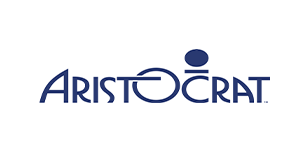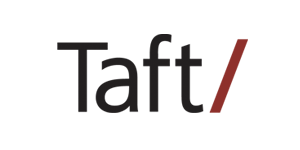- Home
- About IAGA
- Events
- Membership
- Sponsorship
|
Amendment of Macau's Gaming Law Part 1: Proposed Limitations on Payment of Dividends
Expert Insight provided by Rui Pinto Proenca, Managing Partner, and Rui Filipe Oliveira, Partner, MdME Lawyers
One of the most controversial proposals of the consultation document for the amendment of Law 16/2001, released by the Macau SAR Government on September 14th, is the potential requirement that dividend distribution by casino concessionaires be subject to Government authorization. The reason advanced for such proposed limitation is “the intention that profits resulting from gaming activities obtained by the concessionaires be applied more appropriately in promoting the sustainable and diversified development of the Macao SAR”. To achieve such purpose, the consultation document suggests that dividend distribution be subject to (i) certain requirements previously defined and specifically designed for such purpose and (ii) government prior authorization. No details, however, are provided as to what such requirements may be and as to what is the nature of the government authorization. In particular, it is not specified whether such authorization is confirmatory in nature (i.e. if it would be limited to the verification of objective legal and/or financial requirements and legally due upon the verification of such requirements) or, instead, if the government would hold a certain level of discretion. In this paper, we will analyze the consistency of this proposal with the existing legal framework and explore its appropriateness to achieve the underlying policy goals. The Concession System
In the current legal framework, the right to commercially operate casino games of chance is reserved to the Macau SAR. The state monopoly of casino gaming is justified both by economic and social considerations: on one hand, the tax revenue derived from gaming activities consists of around 70% to 80% of all government revenue; on the other hand, the benefits generated by gaming activities must outweigh the potential social costs. Despite this principle, the Macau government has never operated games of chance directly. On the contrary, it has always granted such operation to private companies, through concession contracts. The reasons for this are practical in nature: the development and maintenance of casino properties requires significant investments (that the successive Macau Governments either could not or did not want to undertake) and its operation involves a vocation and a level of efficiency the private sector is better equipped to deliver.
Under the concession mechanism, the Government temporarily grants to private entities the right (and the obligation) to operate casino games of chance. In exchange, the Government obtains revenue in the form of taxes and other types of consideration (e.g., premiums, rent, etc.). It may also benefit from investment commitments by the concessionaire as agreed under contract. In this model, the Government shifts the investment and business risks of casino gaming to the concessionaire and reaps the benefits described, which will then be redirected into the community through government spending. The incentive for the private sector to run these risks is one: profit. The expectation of obtaining a financial gain (through the form of dividends payable to shareholders) is the driving force behind the concessionaire’s investment, risk appetite and management drive to improve competitiveness and efficiency. Dividend Payments in the Current Legal Framework
The pursuit of profit as the ultimate goal of a private company is embedded in its legal definition prescribed by the Macau Civil Code and no shareholder can be deprived of its right to share in a company’s profits. Companies that are granted concession contracts (including casino concessionaires) are no exception to this rule. Under the current legal framework, payment of dividends is subject only to shareholders’ approval. The only allowed restrictions to shareholders discretion are the ones that impose a de minimum threshold, i.e. a minimum percentage of dividends that must always be distributed, rather than a maximum cap.
Profits available for distribution as dividends (“DP”) are generally determined as an excess of net assets in relation to the share capital and non-distributable reserves (DP = NAV - (Share capital + non-distributable reserves)). The share capital corresponds to the sum of the nominal value of the shareholders’ initial or subsequent contributions paid in exchange for their shares. Non-distributable reserves may be established in the articles of association or imposed by law. The standard legal reserve under the Macau Commercial Code (“Commercial Code”) for public companies is formed through the retention of 10% of its annual profits until it reaches 25% of its registered share capital. The share capital and the non-distributable reserves serve as retention thresholds and ensure that a company permanently retains its net assets above a certain limit. They serve the purpose of providing companies with a solvency margin acting as an additional guarantee for creditors and stakeholders. The higher the capital and reserve retention requirements, as compared to the minimum determined by the Commercial Code, the higher the level of financial soundness that is imposed to operate in certain regulated sectors. In some industries both the share capital and legal reserve requirements are higher. In some cases, the share capital may further be subject to continuing adjustments, based on pre-defined ratios. This is the case in the financial and insurance sectors, where an adjustment may be required to maintain solvency margins and/or ratios. It is also the case of certain concession contracts, where concessionaires must comply with an equity-to-fixed assets ratio (electricity supply concession), or a certain debt-to-equity ratio (natural gas supply concession). In its current iteration, Law 16/2001 determines that casino concessionaires must have a minimum share capital of MOP200 million. At the same time, it does not impose any other adjustments or the creation of any special legal reserve. As such, only the requirements of the Commercial Code apply, i.e., 10% of annual profits until the reserve thus created reaches 25% of the share capital (MOP50 million in the case that the share capital is set at MOP200 million). The shareholders of gaming concessionaires are therefore free to distribute dividends as they please, in compliance with the thresholds of the Commercial Code and other non-distributable reserves set in their respective company’s articles of association. The Proposed Limitations on Distribution of Dividends and its Potential Consequences
Introducing limitations to the distribution of dividends by private companies to its shareholders, other than the ones described above, has no parallel example within Macau’s legal framework. In particular, such requirement for government approval was never introduced, even in the context of concession contracts of essential public services, such as the water and electricity supply or the import and transportation of natural gas.
It is paramount, therefore, to understand the public policy objectives that may justify such drastic departure from the structural principles of the Macau legal system, including from the concession mechanism. The consultation document identifies this objective with the necessity that the concessionaire’s profits be applied more appropriately in promoting the sustainable and diversified development of the Macao SAR. In our view, such statement may be subdivided into three policy objectives:
It is fair to say that any or all of the above objectives are legitimate. However, the effectiveness of the proposed measure to achieve them is debatable, particularly when its downsides are evident. The proposal creates a significant disincentive to private investment and does not guarantee that the profits retained will be used to make further investments. Ultimately, the business uncertainty the measure introduces (as reflected in recent market sentiment) may compromise the ability of concessionaires to remain competitive thus affecting their ability to achieve the exact same policy objectives the proposal intends to accomplish.
In light of the above, it is important to find alternatives, within Macau’s legal framework, to reach the proposed goals without affecting the fundamental rights of shareholders under a free enterprise system as provided in the Macau Basic Law. In our view, this could be achieved as follows:
a) The consultation document refers, on a number of occasions, the need to enlarge the customer base. This means the operators will have to find ways to attract new customers from a wider range of markets and, for that, they will need to continue to invest in order to diversify their offerings and be competitive at a regional level. However, to achieve this result, the Government may either determine specific investment obligations for the Concessionaires under their contract (what, when and how much) or set spending targets for non-gaming activities and let the concessionaires decide how to better allocate their resources. Contractual mechanisms to address noncompliance with such obligations can be defined to enforce their compliance. A regular performance review should be implemented, and the objectives could be revised from time to time.
Following the example set under other concessions in Macau, investment objectives may be set in the law (or regulations) and the concessionaires will have the obligation to prepare and deliver an investment masterplan and their respective implementation plans and timelines.
b) The most straightforward way to redirect gaming revenue to the benefit of the local community is by way of taxation. Although the current tax rate (35% levied over gross gaming revenue) is already considered high for international standards, the existing contracts foresee further contributions (of up to 5%) may be made by the operators to promote Macau’s tourism sector and social, cultural, educational, and scientific development. This threshold has not been formally reached under the current concessions and the usage of this mechanism may be enhanced. Furthermore, concessionaires are still subject to complementary income tax, although they have been exceptionally exempted for the past 20 years.
c) Finally, there is no scarcity of legal mechanisms to assure the financial soundness of the operators throughout the duration of the concession contracts. Law 16/2001 already includes the right of the government to request the concessionaires to provide adequate guarantees (including bank guarantees) and to collateralize specific obligations. In addition, it could also determine tried and tested prudential rules, similar to the ones used in the banking and insurance sectors, or to impose debt to equity or asset to equity ratios similarly to what already happens in other concession contracts.
Overall, our view is that the proposal to restrict dividends, put forward by the consultation document, is difficult to harmonize with Macau’s legal framework. Furthermore, it is questionable if the proposed measure will efficiently accomplish its underlying policy goals. It is also clear that such goals, being legitimate, are potentially better achieved by other mechanisms available under Macau’s legal system which do not interfere with the, no less legitimate, shareholders’ right to distribute dividends. |





















